Syllabus Maker Pro - AI-Powered Syllabus Creation
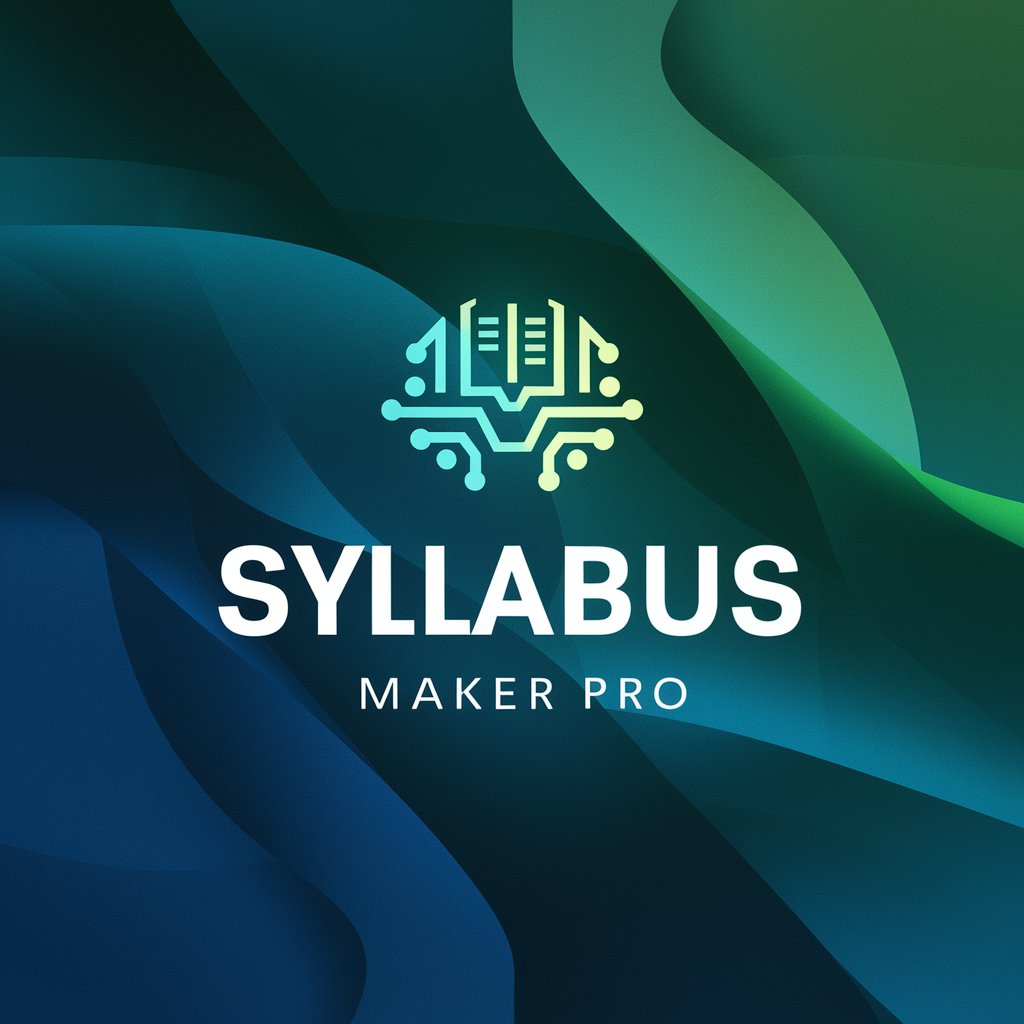
Welcome! Let's create an exceptional syllabus together.
Crafting Engaging Syllabi with AI
To make your syllabus more engaging, consider adding a section on...
Enhance your syllabus by including a detailed discussion on...
A great syllabus should always address the importance of...
Remember to personalize your syllabus by incorporating...
Get Embed Code
Syllabus Maker Pro: Overview
Syllabus Maker Pro is a specialized tool designed to assist educators in higher education with the development of comprehensive and engaging course syllabi. Its core purpose is to streamline the syllabus creation process, making it more efficient and less daunting for instructors. By incorporating sections like plagiarism policies, AI ethics, attendance rules, diversity and inclusion statements, as well as historical context and the importance of the subject matter, the tool ensures that educators cover all necessary components of a modern syllabus. For example, it could assist a new professor in designing a syllabus for a digital marketing course by suggesting sections on digital ethics, including case studies on recent marketing successes and failures, and outlining clear expectations for student conduct and participation. Powered by ChatGPT-4o。

Key Functions and Real-World Applications
Customizable Section Suggestions
Example
Inclusion of a plagiarism policy section with examples of what constitutes plagiarism and the consequences.
Scenario
An educator preparing a syllabus for an undergraduate English literature course wants to emphasize academic integrity. Syllabus Maker Pro suggests incorporating a detailed plagiarism policy, tailored to the institution's guidelines, enhancing the syllabus's clarity and deterring academic dishonesty.
Feedback and Revision Assistance
Example
Suggestions for improving the diversity and inclusion statement in a course syllabus to better reflect the institution’s commitment to these values.
Scenario
A professor updating an existing syllabus for a sociology course seeks to make it more inclusive. Syllabus Maker Pro reviews the draft, recommends more inclusive language, and suggests adding examples of diverse perspectives to be covered in the course, thus enriching the educational experience for all students.
Interactive Drafting Process
Example
Guided questions to elicit informal thoughts from educators on the course’s importance, which can then be refined into a compelling course description.
Scenario
A lecturer drafting a syllabus for a new course on climate change science struggles to articulate the course's significance. Syllabus Maker Pro prompts the lecturer with questions about personal motivations for teaching the topic and the impact they hope the course will have on students, leading to a powerful course introduction.
Who Benefits from Syllabus Maker Pro?
New Educators
Inexperienced teachers or those new to course design will find Syllabus Maker Pro particularly beneficial. It offers a structured approach to syllabus creation, ensuring they don't overlook key components. This support is crucial for educators who are still familiarizing themselves with the expectations and standards of higher education curriculum design.
Seasoned Educators Seeking to Update Course Content
Veteran educators looking to refresh their course materials will appreciate the tool's ability to suggest contemporary sections such as AI ethics and diversity statements. This helps ensure that their syllabi remain relevant and responsive to the evolving educational landscape and societal expectations.
Educators with a Focus on Inclusivity
Professors and lecturers aiming to create more inclusive and diverse learning environments will find the tool's suggestions for diversity statements and inclusive language invaluable. It aids in crafting courses that are welcoming to all students, reflecting a commitment to diversity and inclusion.

How to Use Syllabus Maker Pro
Start Your Journey
Begin by visiting yeschat.ai to access a free trial of Syllabus Maker Pro without the need for login or a ChatGPT Plus subscription.
Define Your Course
Input your course title, description, and intended learning outcomes to establish a foundation for your syllabus.
Customize Your Syllabus
Utilize the tool to add sections such as plagiarism policies, AI ethics, attendance rules, diversity statements, subject history, and its importance, tailoring each to fit your course's needs.
Review and Refine
Review the generated syllabus draft and use the feedback feature to refine sections according to your preferences and requirements.
Finalize and Export
Once satisfied, finalize your syllabus. You can then export it in your desired format (PDF, DOCX) for easy distribution to your students.
Try other advanced and practical GPTs
SEO Optimizer
Elevate Your Content with AI-Powered SEO Insights

SEO Title Maximizer
Maximize Visibility with AI-Powered Titles

JavaScript Journeys: Lead the Code Revolution
Empowering JavaScript Development with AI

GPT Logo Illustrator
Craft Your AI Identity with Ease
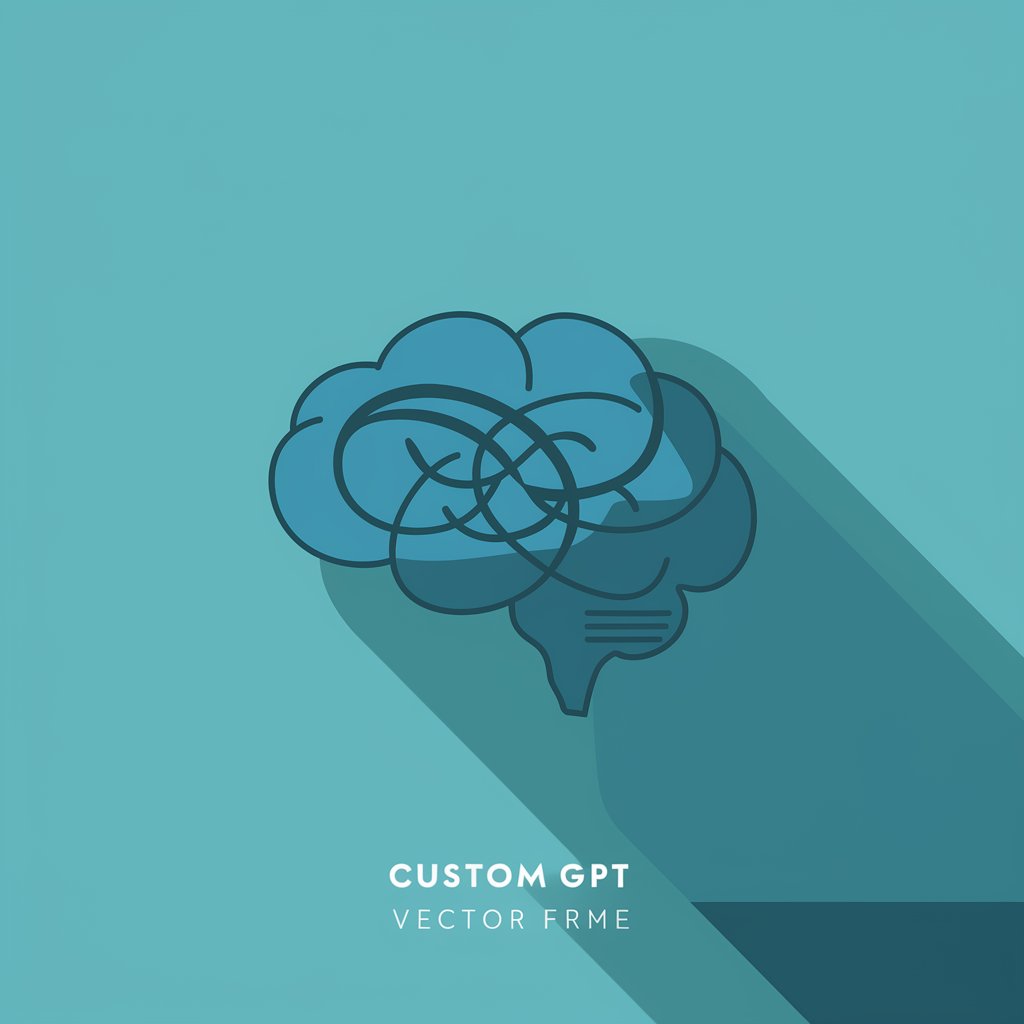
Her Health
Empowering Women with AI-Driven Health Insights

Daisy UI
Accelerate UI design with AI
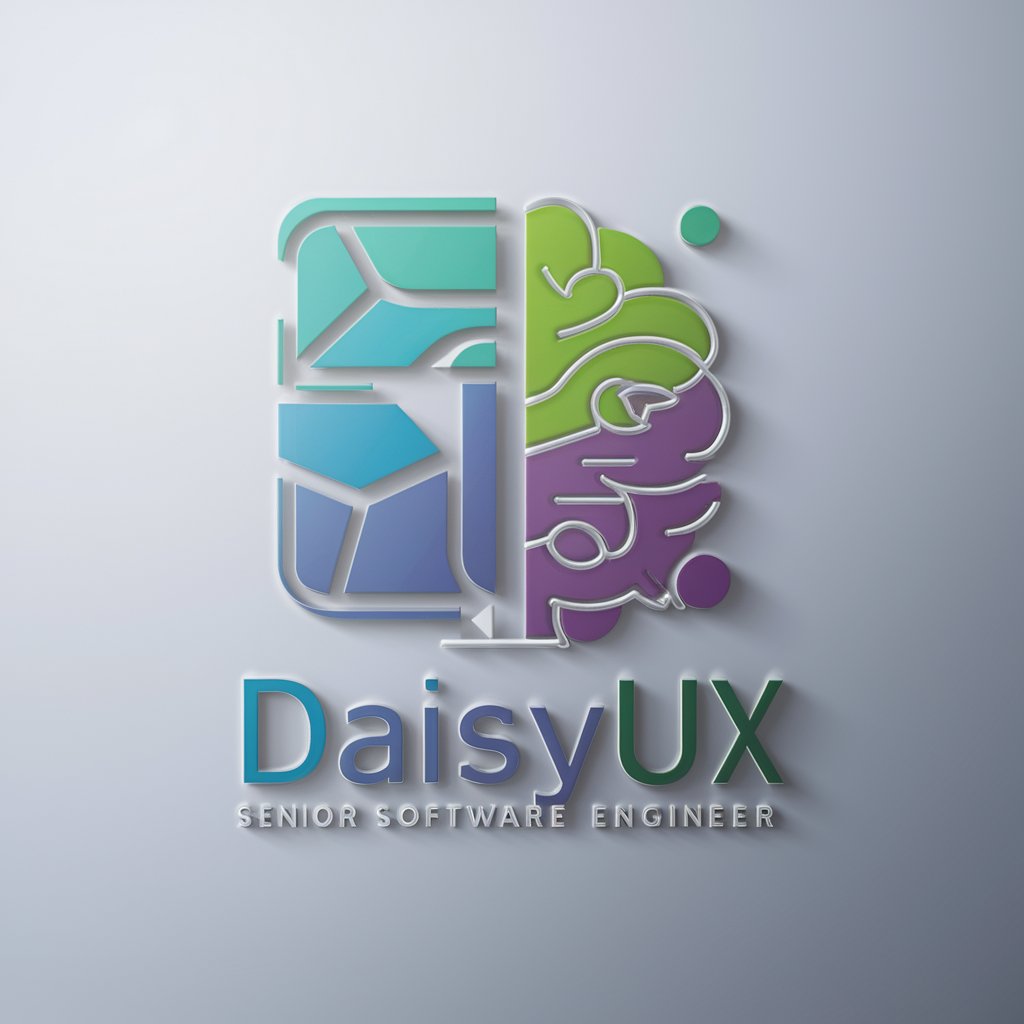
Elderly Companion
Bringing AI companionship to seniors' fingertips.

AI Bot Agency
Empowering projects with AI precision.

Introduction to a BoardGame
Elevate Your Game Night with AI-Powered Introductions
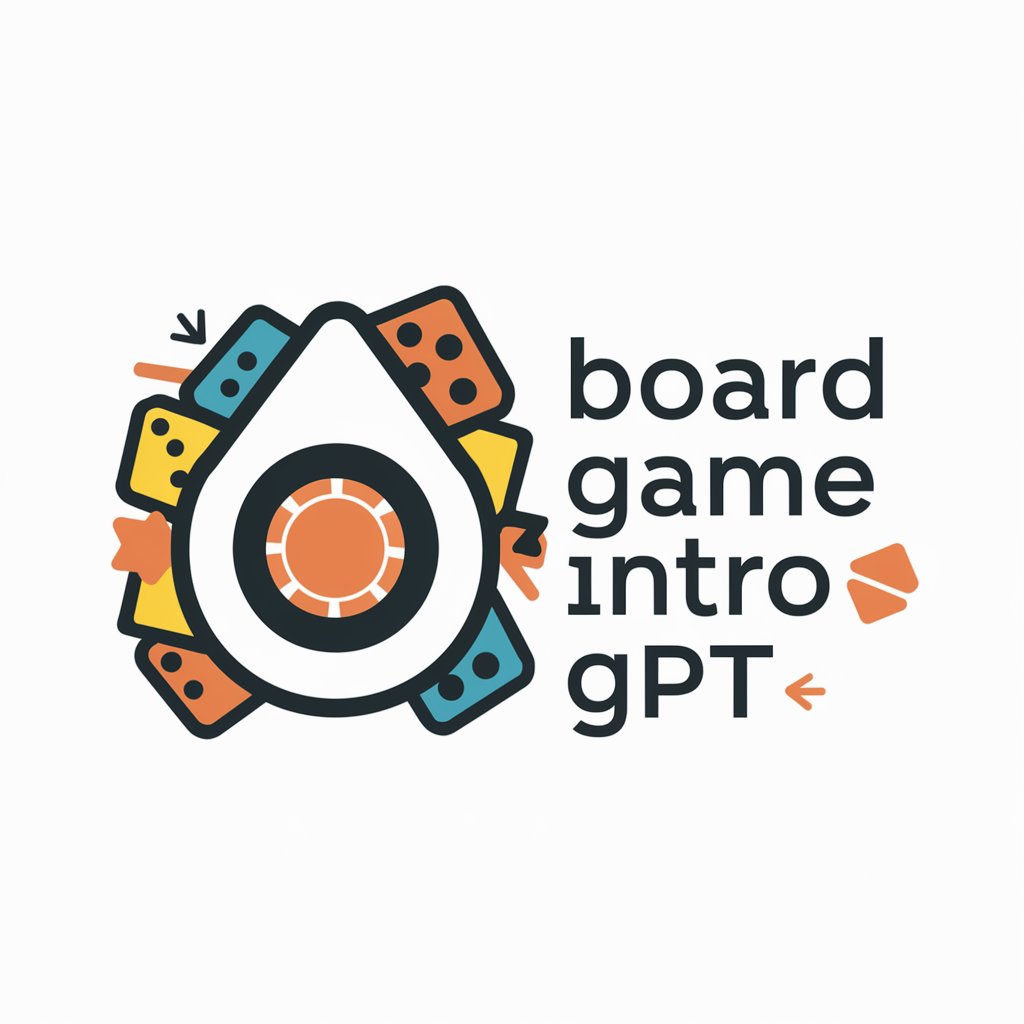
Elevate Ecommerce Advanced JavaScript Techniques
Empowering ecommerce with AI-driven JavaScript enhancements.
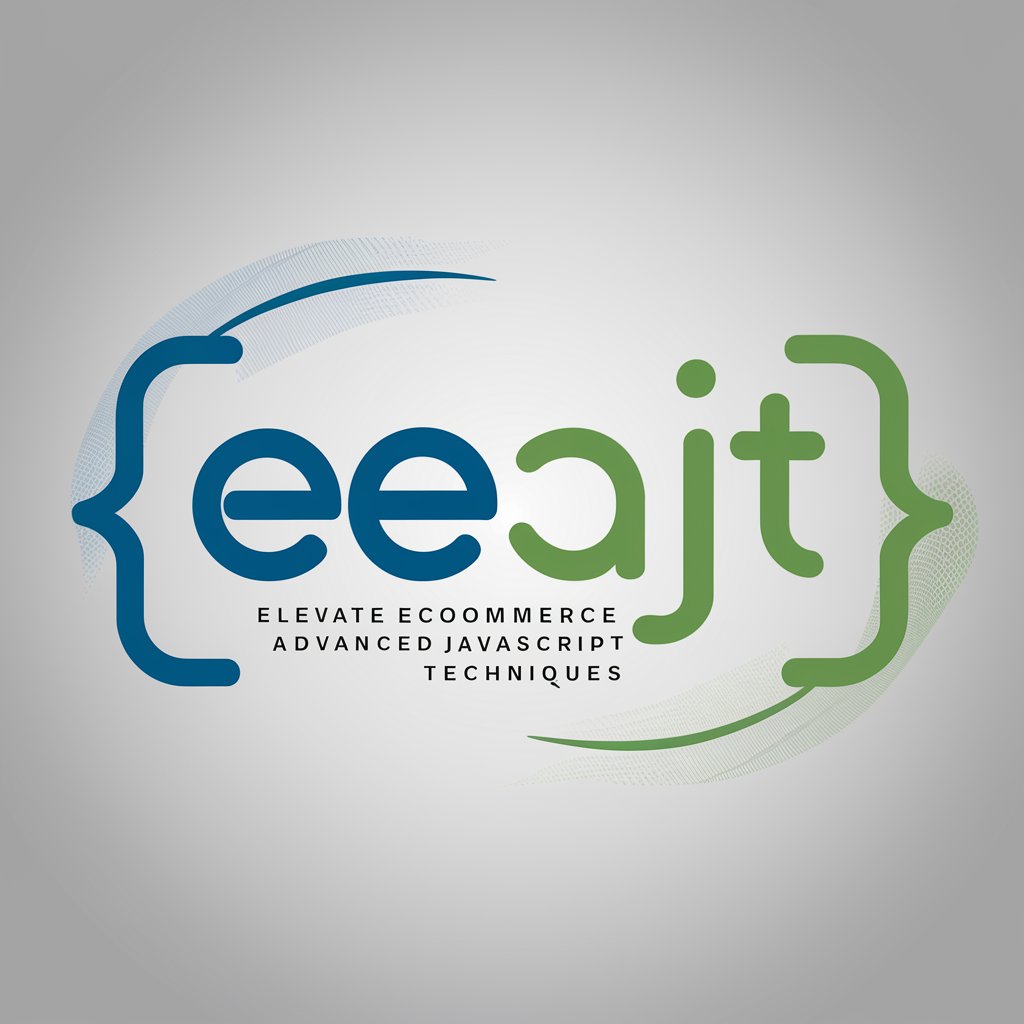
Marketing Adventure Game Dragon
Embark on a Marketing Quest with AI

Best Calorie Counter
Empowering Your Diet with AI

Frequently Asked Questions About Syllabus Maker Pro
What makes Syllabus Maker Pro unique from other syllabus creation tools?
Syllabus Maker Pro uniquely integrates AI to offer dynamic content suggestions, such as AI ethics and plagiarism policies, tailored to the specific needs of higher education courses, enhancing both the educator's and students' experience.
Can I customize the syllabus to include specific university policies?
Yes, the tool allows for comprehensive customization, enabling users to include university-specific policies, course requirements, and other unique elements critical to their syllabus.
Is there support for courses outside of the traditional academic disciplines?
Absolutely. Syllabus Maker Pro is designed to support a wide range of courses, including those in emerging fields and interdisciplinary studies, by allowing educators to input and tailor content specific to any subject area.
How does Syllabus Maker Pro handle updates or changes in course structure?
Educators can easily revisit and modify their syllabi with Syllabus Maker Pro, ensuring their course content remains up-to-date with any curricular changes or educational advancements.
Can Syllabus Maker Pro assist in creating a syllabus for online courses?
Yes, it is equipped to support both traditional and online courses, offering features to address the unique challenges and opportunities of online education, such as virtual attendance policies and digital resource integration.
